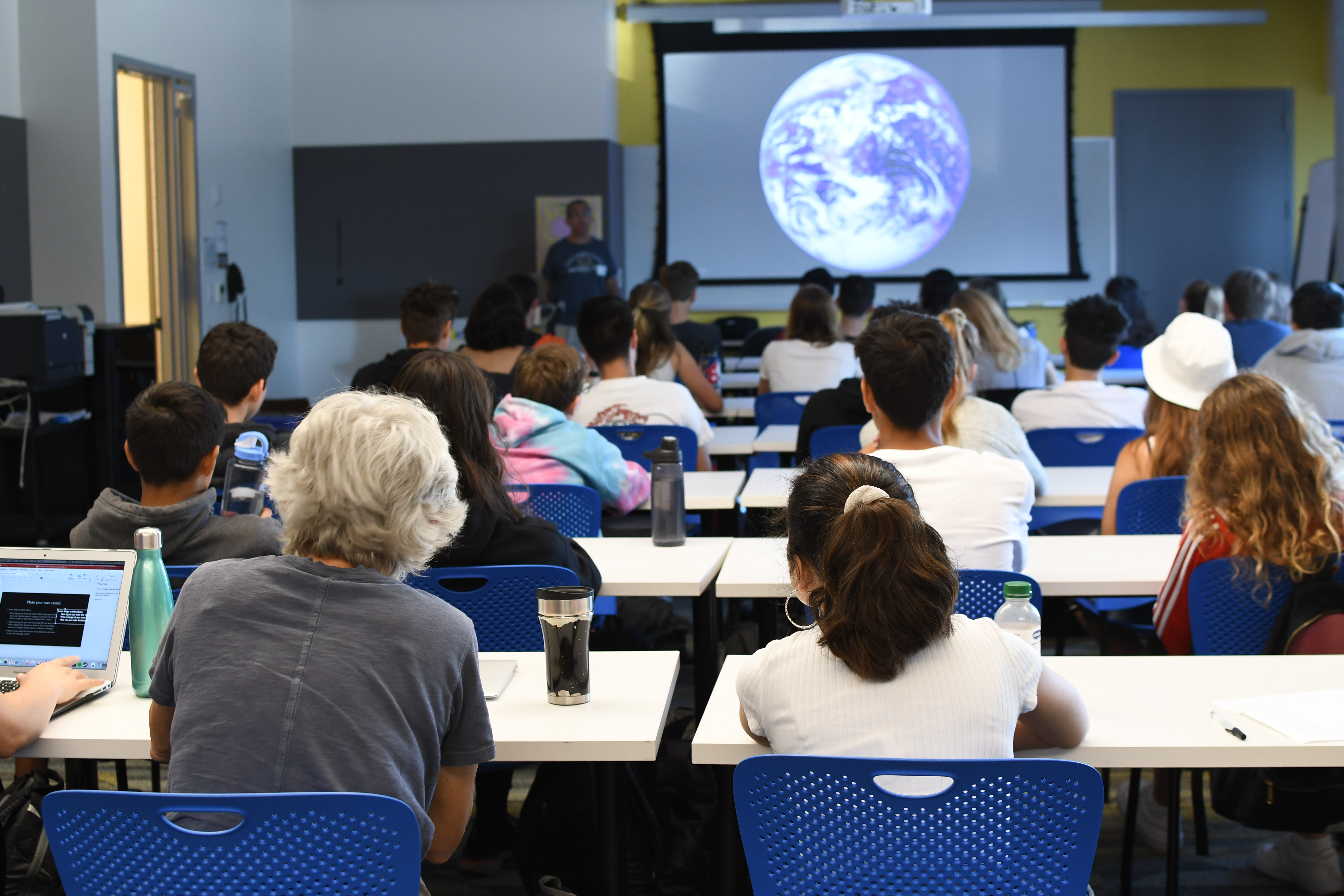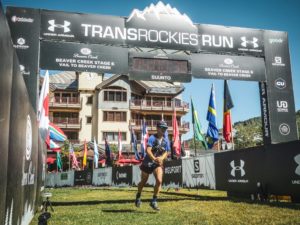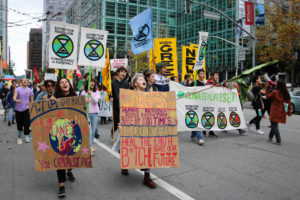In response to the Global Climate Strike, members of the Lick-Wilmerding community hosted a climate teach-in on Thursday September 26th and Friday the 27th. Organized by LWHS teachers and students, the teach-in was posed as a collective educational opportunity in solidarity with the strikes, focused on the social-justice implications of climate change.
During an announcement the week of the teach-in, staff organizers read, “We acknowledge that there are issues and movements happening all the time that should also inspire action… Climate change does affect everyone living on this planet, and it also has everything to do with the social inequities we live in.”
For two days, workshops were offered during every block. Students could attend either a workshop or their regularly scheduled class. Furthermore, on Thursday, all students were required to attend an assembly of one of three movie screenings.
The most popular assembly option was a screening of An Inconvenient Sequel: Truth to Power, the follow-up film to An Inconvenient Truth. Both films were written by and starred vice president and former presidential candidate Al Gore. An Inconvenient Sequel covered the recent impacts of climate change and followed Gore as he negotiated terms at the Paris G20 meeting — terms which eventually became the Paris Climate Agreement. The documentary had a message of hope and optimism, conveying the message that if people work hard, they can beat climate change.
Friday, the second day of the teach in, Inconvenient Sequel filmmakers Richard Berge and Jon Shenk held a discussion with students about the documentary. “Having students be inspired by the film is the ultimate success,” said Berge, producer of An Inconvenient Sequel and parent of Allie Berge ’18. “At the end of the day, you want it to affect people’s outlooks on their world, so it’s very encouraging to see people turn out and want to do something about it.”
A second film option was the ABC documentary Seventh Generation, about the efforts of the International Indigenous Youth Council to block construction of the Dakota Access Pipeline, which was built across the Sioux Standing Rock reservation. The film was introduced by Lick faculty members Catherine Fung of the English department and Diana Suárez-Vargas of the BME department. Fung started the assembly with a land acknowledgment, saying that in showing the film, she wanted to make space to acknowledge that indigenous people have been resisting the forces of capitalism and colonialism that cause climate change for a long time. The film detailed indigenous youth’s efforts to, as one activist in the film put it, “protect [their] sovereignty and future.” The documentary showed indigenous youth protesting peacefully in prayer, enduring dog attacks, rubber bullets and tear gas at the hands of police officers.
Another film screened during the teach-in was An American Ascent, a documentary about the first African American team to climb Denali, a mountain in Alaska. Climber Scott Briscoe, a member of the team, answered questions after showing several clips from the movie. While the team was unable to summit the mountain due to a lightning storm, Briscoe said that the point of their ascent was more than just climbing to the top of a mountain — it was to make history.
“For me, it’s the challenges in life, and being able to walk away with them, and walk away from them and reflect on them and use them as an energy source to move me in the next direction,” Briscoe said. “For me, that’s so powerful…We went through these challenges, we were able to walk away.”
Paper Tiger Staff reported on a number of the optional workshops, such as the one led by the student leaders of the water conservation club: Sofia Morris ’20, Isabella Yin ’20, Laura Boyd ’20 and Zoe Fu-Chen ’20. The workshop focused on world inequities of water usage, water waste in food and clothing production, as well as initiatives—such as reducing the amount of meat served in the cafeteria — to make LWHS more water friendly.
In Fung’s 10th grade English class, students analyzed two environmentally themed comics and learned zine-making skills from Lucy Park ’22. Students spent the remainder of the workshop researching issues related to climate change and creating zines, comics, or other forms of art.
LWHS science teachers, Carrie Maslow, Gillian Ashenfelter, and Anton Krukowski led a workshop in which participants discussed the intersections between feminism and environmentalism, citing research from the organization Project Drawdown. Maslow, Ashenfelter, and Krukowski emphasized that one of the best ways to combat the climate crisis is by educating girls around the world. Women who have had higher degrees of education tend to marry later and have fewer children, decreasing material demand on the planet and reducing emissions. Students learned how an increased focus on reproductive healthcare, such as access to birth control and resources around family planning, is a vital means of fighting climate change.
Jacqueline Gutierrez, from Poder, an organization that works with San Francisco Latino immigrant families and youth to create community-led environmental initiatives, led a workshop in the Center. Gutierrez talked about the links between colonialism and gentrification, the role of agriculture corporations in creating patterns of forced human migration and issues of environmental injustice in San Francisco’s neighborhoods.
The teach-in’s keynote speaker, Dr. Robert Root, father of Gabe Castro-Root ’21, is a physician and a leader of the Climate Reality Project, a non-profit organization founded by Al Gore. Root presented the medical repercussions of climate change; he discussed how increased worldwide temperatures can cause heat stress, how air pollution has a disproportionately high impact on low-income communities, and how anxiety surrounding climate change, dubbed “eco-anxiety,” affects a large portion of youth.
While many teachers did not offer lessons about climate-change during the teach-in, they pledged to bring an environmental perspective to their lessons later in the year. According to an email sent by the organizers, the event was intended to “foster a culture and practice of us coming together to support each other on issues that matter to our lives.”







